Bikie disappearances and bashings, Bodies in the Barrels, House of Horrors: Shocking crimes of Adelaide’s northern suburbs
Murder of an innocent person. Bashings. Mystery disappearances. Bikies, their associates and other criminals have caused chaos over the years in Adelaide’s northern suburbs.
SA News
Don't miss out on the headlines from SA News. Followed categories will be added to My News.
The northern suburbs of Adelaide were home to some of the most horrific, infamous and shocking crimes to come out of South Australia.
From disappearances, horrific murders and serial killings, child abuse of the worst kind and bodies mutilated and found in barrels, take a look at some of the worst.
Jayden Paul Casey, Tuesday Holly Thomas, Joel Williams and Peter Slavin-Molloy
It started with an unfounded rumour of sexual assault – and it ended with an innocent woman brutalised, gagged, thrown in a car boot, and even refused help by a triple-0 operator.
High on drugs, Jayden Paul Casey, 28, Tuesday Holly Thomas, 35, Joel Williams, 39, and Peter Slavin-Molloy kidnapped their victim at gunpoint, but that was just the start of the 2020 attack.
The victim was “interrogated” and “terrorised” by the three captors and filmed as they attempted to force her to apologise for everyone she “ripped off”.
Thomas punched the victim in the face while Slavin-Molloy spat at the victim and told her he would urinate on her.
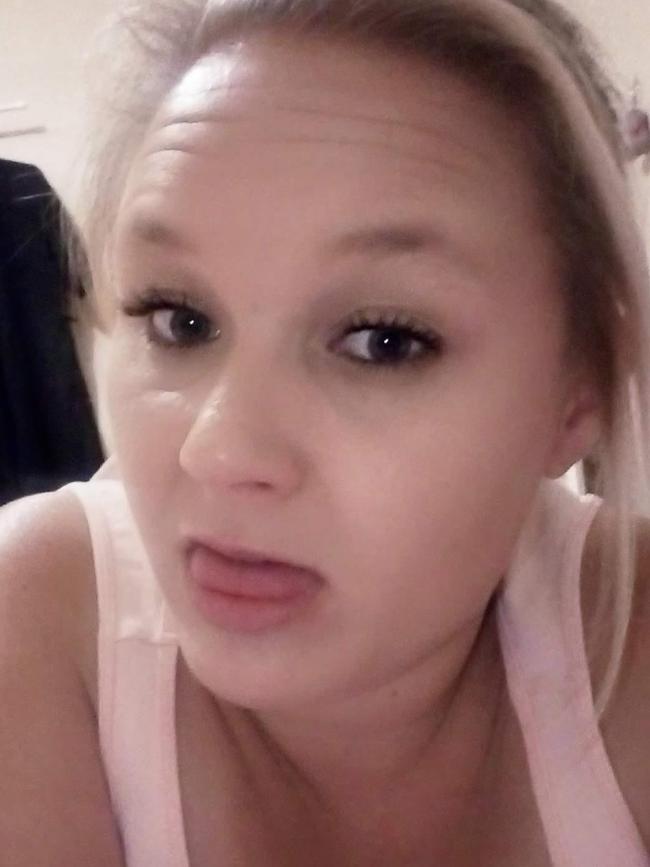
The victim was tied up, gagged and a dog lead placed around her neck.
The abuse continued, and the victim was placed in the boot of her own car, and after falling unconscious called triple-0 for help – but the disbelieving operator hung up on her.
Her second call was successful and police found her at an Elizabeth Park house in the boot. She was taken to hospital for injuries including a fractured eye socket.
Thomas, Williams, Slavin-Molloy and Casey pleaded guilty to false imprisonment and various assault charges, while Casey, Slavin-Molloy and Williams also pleaded guilty to kidnapping.
Judge Liesl Kudelka sentenced all four to jail.
Sentence – Jayden Paul Casey – Five years, seven months, with two years, 10 months non-parole.
Tuesday Holly Thomas – four years and six months with two years and four months non-parole
Joel Williams – five years and three months with two years and four months non-parole
Slavin-Molloy – three years and 11 months with one year and eight months non-parole.
Hillier triple murder
The horrific murder of two young children and their mother was preventable – had government agencies intervened – and left lifelong scars on their distraught family.
In a case that shocked the state, Adeline Yvette Wilson-Rigney, 28, was violently beaten and choked to death by her former partner, Steven Graham Peet, at their Hiller home on May 30, 2016.
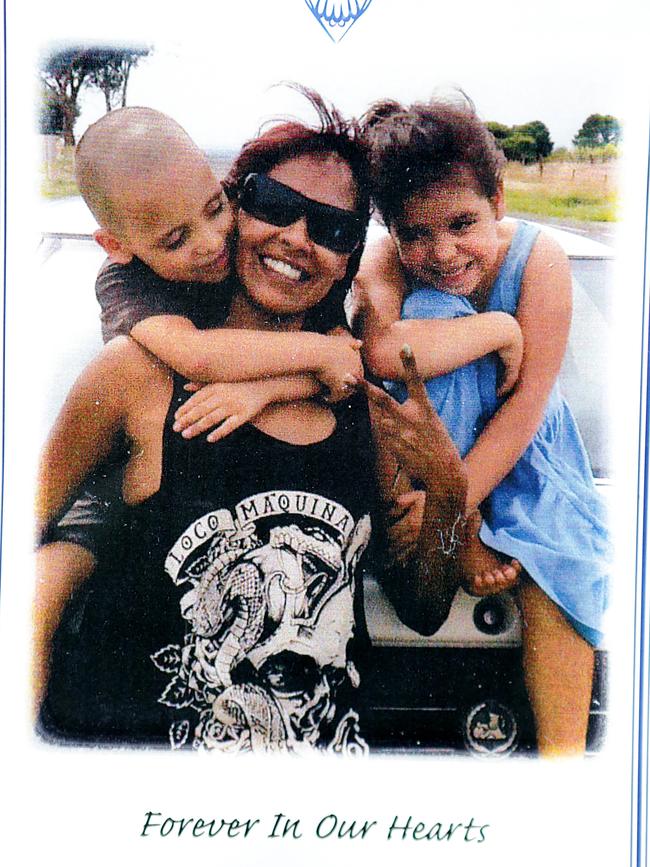
Ms Wilson-Rigney’s two children, Amber, 6, and Korey, 5, were “hogtied” and strangled to death by zip ties, and locked in a wardrobe.
The case caused untold grief for the grandparents on the paternal and maternal side as Peet, then 30, initially pleaded guilty to Ms Wilson-Rigney’s murder, but tried to argue mental incompetence in relation to the children.
He also attempted to argue he was experiencing “battered wife syndrome” and in a “dissociated state” when he murdered the two children and had pleaded not guilty to the charges – despite make six separate “admissions” to people on the day and in the month after.
The argument was based on a defence psychologist who assessed Peet and revised his opinion after receiving material from a prosecution psychologist, which led to his guilty pleas to Amber and Korey’s murder.
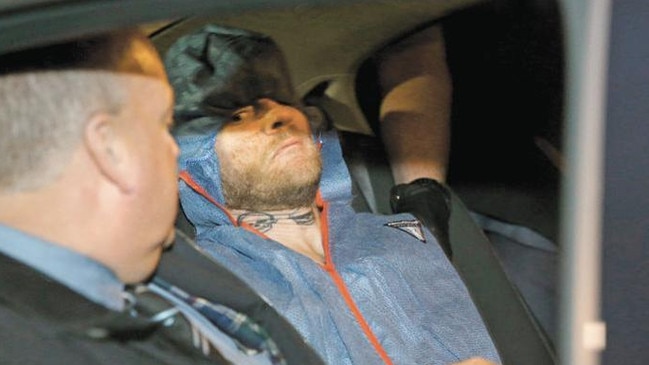
An Ombudsman report after the murders found 11 reports had been made about the family to the Department of Child Protection.
The report prompted a coronial inquest into the part the department played in the children’s deaths after the Supreme Court trial heard DCP case workers had visited the home before or during the moments the murders took place.
Mr Egberts and his partner, Janet Wells, have continued to work to have the department held accountable for its role in the murders, and were recently forced to return their $40,000 victims of crime payment before receiving compensation from DCP.
Sentence – Steven Graham Peet, convicted of all three murders and sentenced to life imprisonment with a 33-year non-parole period
Finks’ brutal club assault on Charles Bonnici
It was an internal club dispute that led to the savage bashing of a senior Finks member at the club’s north headquarters in Salisbury.
Charles Bonnici was sergeant-at-arms of the Fink’s north chapter – second in command – at the time five men assaulted him within inches of his life.
Corey Dettman, one of the attackers, was the sergeant-at-arms of the south chapter of the Finks – and had four men in tow when they took part in the planned attack on Mr Bonnici in February 2013.
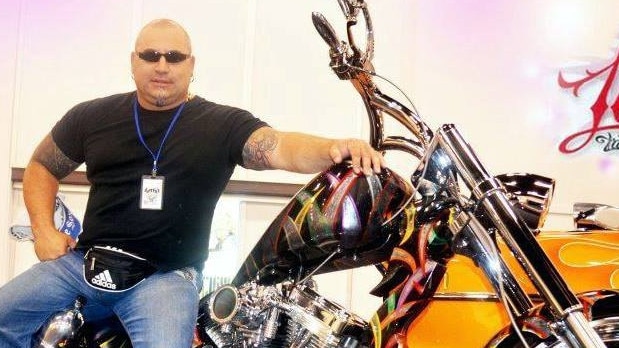
Mr Bonnici’s injuries included a collapsed lung, 13 fractured ribs, lacerations to his face, a broken jaw, broken nasal bone and permanent brain damage.
One of the men was Mostyn Niemann – a former amateur heavyweight boxing champion by 19 – and his prior good character and representation of Australia and the Commonwealth Games meant he had better prospects of rehabilitation – and a shorter sentence.
Dettman, 43, Niemann, 26, Bozidar Cekic, 25, Dean Richard Ciantar, 25, and Paul Paunovic, 42 were all arrested for the assault more than a month after the attack and maintained their innocence.
Each man was found guilty by Chief Justice Chris Kourakis of aggravated causing serious harm with intent – but Mr Bonnici’s standing within the Finks meant they would see penalties less than if an “innocent member of the public” had been attacked.
Sentence – Corey Dettman – 15 years, 12 years non-parole
Mostyn Niemann – Seven years 10 months, four years and nine months non-parole
Bozidar Cekic – 12 years, seven years and 10 months
Dean Richard Ciantar – nine years, six year and two months non-parole
Paul Paunovic – 12 years, eight and a half years non-parole
The murder of Jason De Ieso
Jason De Ieso was a recently married father-to-be when he was callously gunned down by bikie-linked men in a case prosecutors described as mistaken identity.
Mr De Ieso died after a group of seven hooded men shot him a point-blank range at his Pooraka workshop, Unique Custom Paint and Panel in November 2012.
Prosecutors maintained the intended target had been senior Finks bikie Charles Bonnici – targeted amid an escalating bikie war between the Hells Angels and Finks which began 18 months earlier.
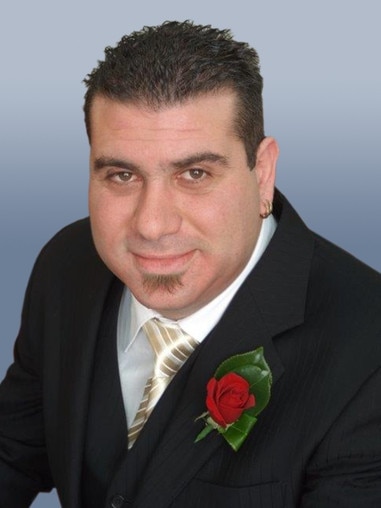
Eight men stood trial for the murder, each linked to the Hells Angels through their membership, prospect status or as an associate.
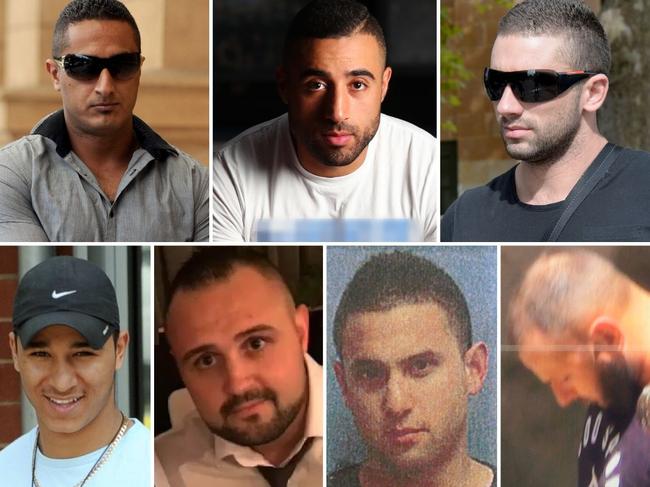
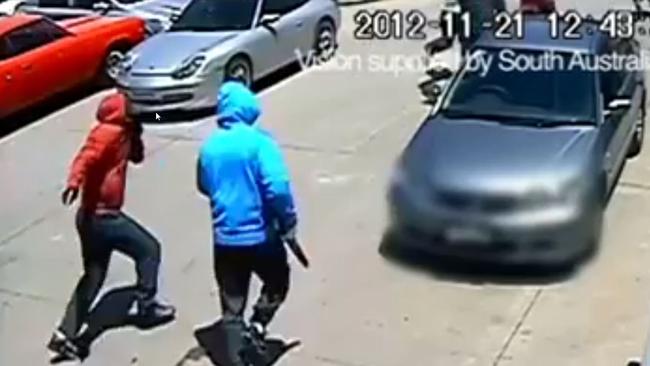
The Supreme Court jury of six men and six women found the seven men guilty of murder on October 10 after more than 30 hours of deliberations across six days to conclude a five-month trial.
The jury was unable to reach a verdict on an eighth man.
Following the verdict, lawyers for each of the seven men lodged appeals with the court to have the convictions quashed and to be found not guilty of murder.
Sentence – Husain Alzuain and Musa Alzuain – life with 35 years non-parole
Mohamed Alzuain, Daniel Mark Jalleh, Ross William Montgomery, Kyle Lloyd Pryde, Nicholas Sianis – life with 30 years non-parole
Parafield Gardens’ House of Horrors
From February to June 2008, five children sustained horrific abuse in a house swarming with cockroaches, flies and maggots. Rotting rubbish and faeces was found on the floor.
The children were beaten, starved, choked and fed only the scraps left over after the other children living there ate.
Five adults and 21 children lived in the three-bedroom home at Parafield Gardens. The abuse was discovered when a five-year-old boy collapsed after being forced to stand against a wall for hours and was taken to hospital suffering severe hypothermia.
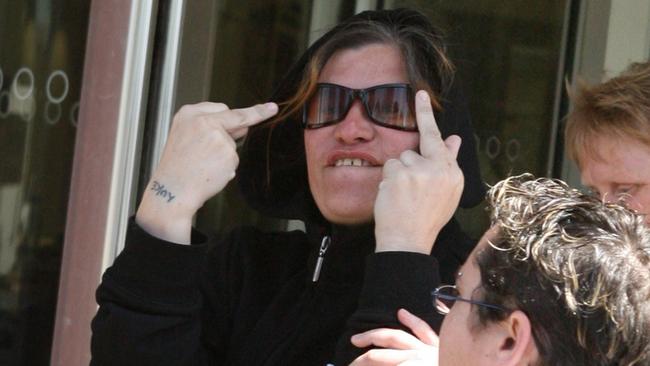
Each of the abused children had injuries, scabies and were suffering from malnutrition.
A complex web of sibling jealousy emerged at trial; the instigator Tania Staker, a mother of 14, had felt threatened by the children because they were the progeny of her then-partner Luke Armistead and another woman who also lived at the house with Staker.
Justice Duggan, presiding over the trial, said the abuse was “beyond comprehension”. The adults stopped the children from eating more and forced the children to stand along a wall from morning until night.
In May, 2014, the government released its response to 32 recommendations by the Child Death and Serious Injury Review Committee where it emerged the children were virtually unknown to state authorities.
In 2011, “Kate”, one of Staker's daughters wanted to “set the record straight” and detailed the realities of living in the house, defending her mother and revealing she had sounded the alarm bells after the five-year-old’s collapsed.
Staker was back in court over a jailhouse assault in 2013.
Sentences – Tania Staker – 10 years in jail.
Luke Armistead, Michael Quinlivan and Robert Armistead – nine years.
The children’s mother – six years.
Steve Williams’ disappearance
He was one of the most prominent bikies in the state, and President of the South Australian arm of the Gypsy Jokers.
And almost 20 years on from his disappearance, no one has answers about what happened to Steve Williams.
Mr Williams was 38 years old when his boss dropped him off at Gepps Cross Hotel on June 14, 2005, after a visit to his mother Jan.
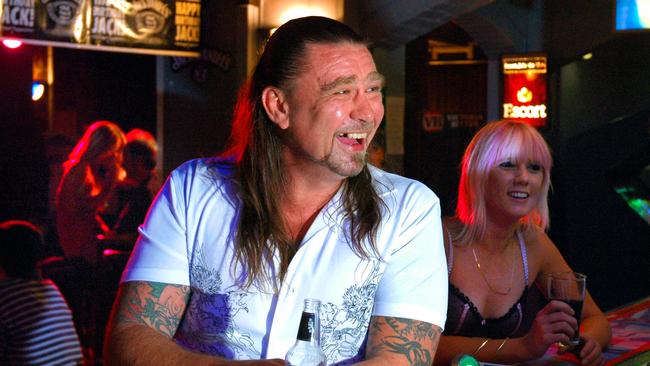
He was not himself, according to Jan, before he received a phone call and left for the hotel.
Police believe he was dropped off at a Gillman trucking company, where he was murdered and his body was removed from the business and covered in tarpaulin in the rear of a white ute.
They revealed Mr Williams, a debt collector, was most likely collecting money from someone who worked at the depot – which was owned by a senior Finks bikie member.
His body has never been located, but theories including being dumped at sea, buried in concrete or in Port Gawler or Middle Beach – or gruesomely disposed of with a woodchipper.
Police are yet to establish a motive, but likely theories include he was murdered by enemies within the bikie community or because of a book he was writing at the time.
Mr Williams’ daughter, Blayze, has continued to share how life after loss has impacted her through her social media presence.
The Eugene McGee case
In a case that created controversy and outrage, Adelaide barrister and former police prosecutor Eugene McGee struck and killed cyclist Ian Humphrey on the Kapunda to Gawler Rd in 2003.
McGee had been seen drinking that day but denied being drunk.
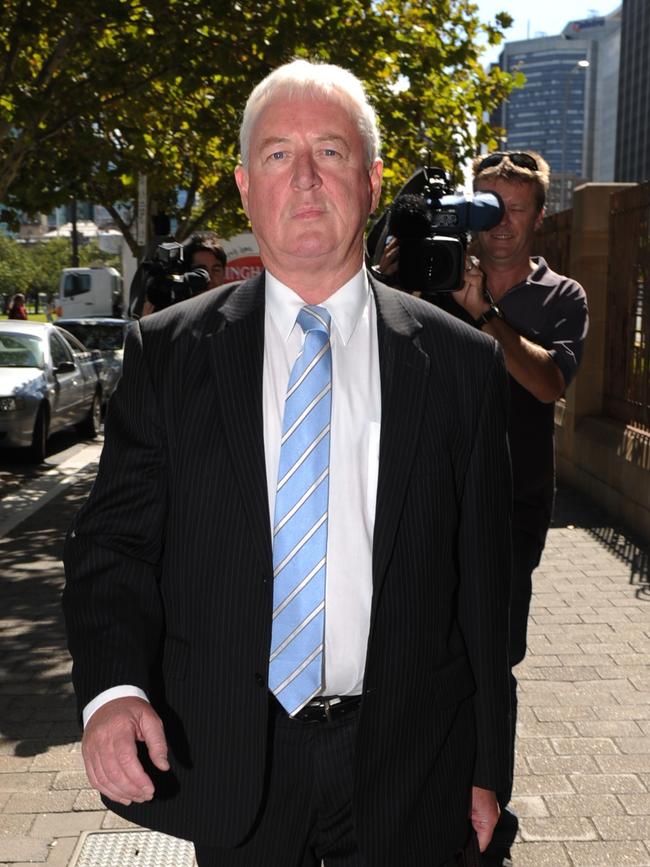
With help from his brother Craig he avoided police and a breath-test for about six hours. Arrested later that night, McGee was charged but acquitted at trial of causing death by dangerous driving.
He was instead found guilty of driving without due care and failing to stop and render assistance, fined $3100 and lost his licence for 12 months.
Two years later a Royal Commission recommended that fleeing a crime scene to prevent evidence from being gathered should be an offence.
It cleared police of corruption or favouritism but found there was a delay by police in locating and interviewing McGee and confusion over whether police should arrest or simply report him.
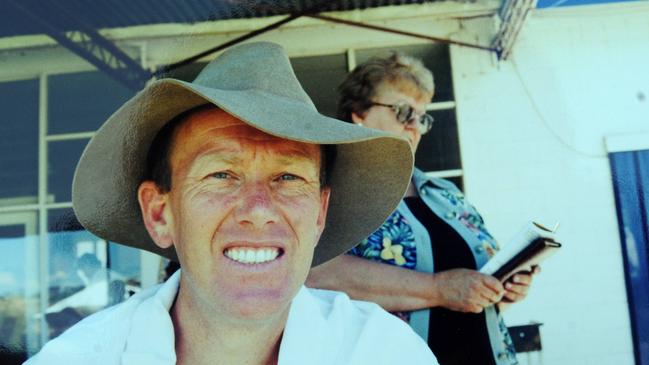
Commissioner Greg James also found crash investigator Sergeant Dan Hassell did not ask McGee to submit to a blood test because he was unfamiliar with the Act and ambiguity and confusion surrounded its use.
The McGee case continued, however – he and Craig were charged with conspiring to pervert the course of justice in 2005. Five years later they were acquitted by District Court Judge Peter Herriman.
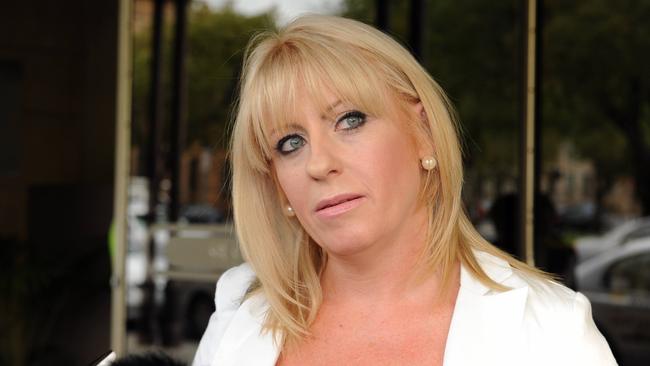
And in 2011, the Legal Practitioners Conduct Board found McGee not guilty of “infamous” conduct and said he could continue practising.
Later in 2013, Mr Humphrey’s widow, Di Gilcrist, was publicly outspoken about Justice Anne Bampton’s drunk driving case – which saw her fined and barred from presiding on driving matters.
Sentence – Eugene McGee, fined $3100 and loss of licence for 12 months
The murder of Joanne Lillecrapp
The discovery of a body in the victim’s prized strawberry patch was gruesome to say the least.
But the murder of Joanne Lillecrapp was infamous for the facts that emerged as the case progressed.
Nicole Therese Courcier McGuinness and her lesbian lover, Donna Lee Casagrande, killed the transgender pro-wrestling truck driver after she invited them to live with her and kick their drug habits.
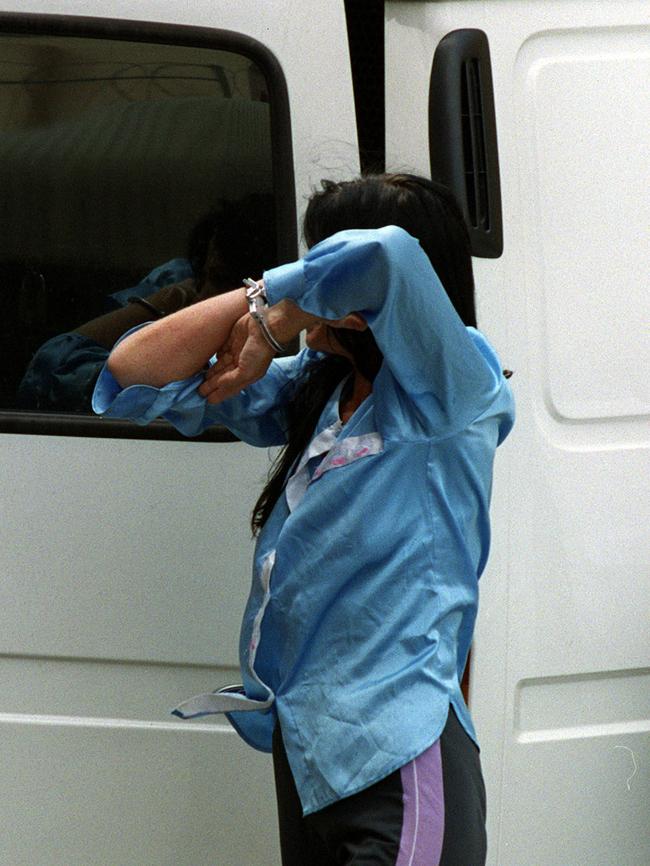
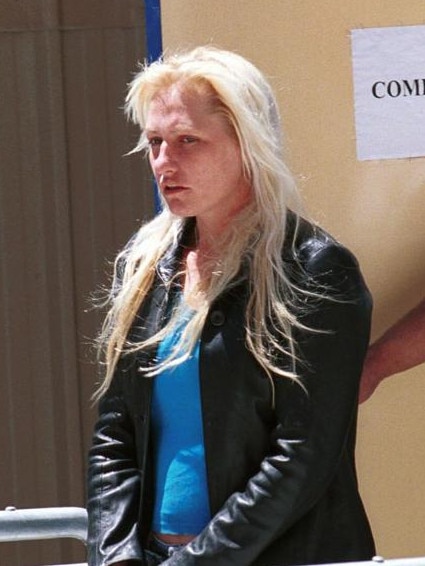
They drugged her, beheaded, dismembered and defleshed her body, then buried it in several different locations and fled interstate.
Parts of her body were discovered in Wingfield – while police were conducting excavations for the remains of Japanese schoolgirl Megumi Suzuki who was killed by escalating rapist Mark Errin Rust.
The couple were arrested after Casagrande attended a NSW police station and offered to confess to a crime in exchange for methadone.
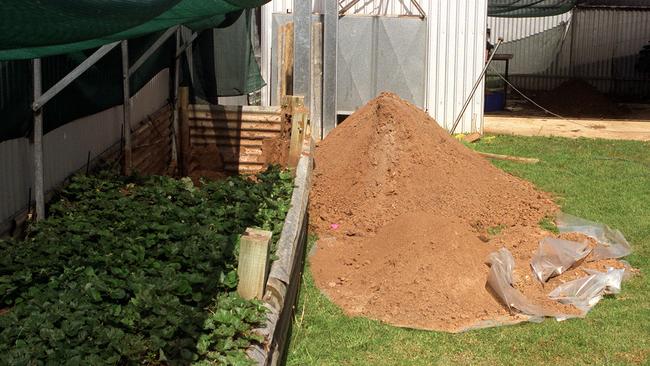
Casagrande was paroled in 2011 and McGuinness in 2021, but both repeatedly breached their release conditions.
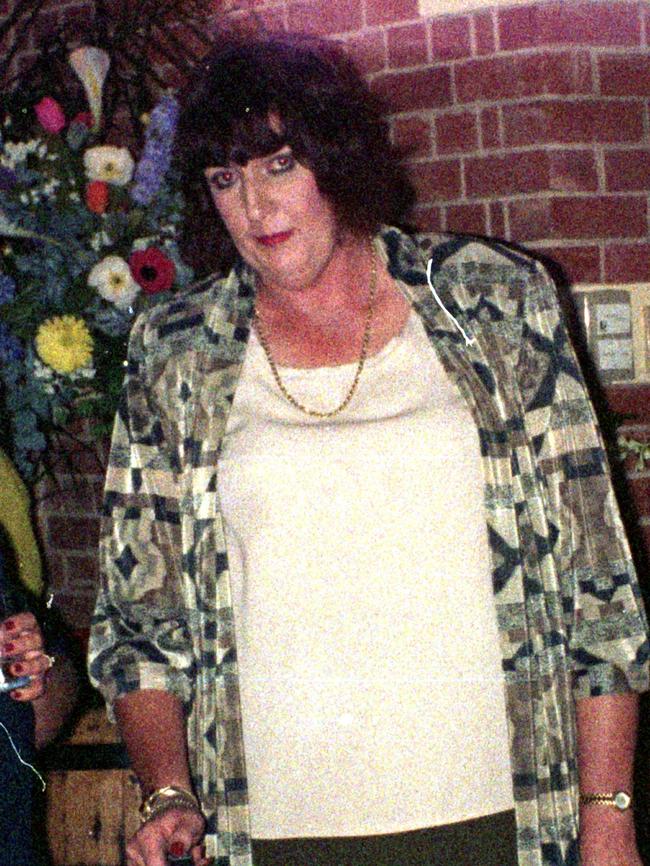
In June, McGuinness blamed Google for her relapse, saying she was “triggered” by reading media coverage of her crime.
McGuinnes pleaded guilty to murder, while Casagrande eventually pleaded guilty to manslaughter – which Justice Perry regarded as on the cusp of seriousness of murder.
Both were sentenced to imprisonment for their crimes, while Casagrande was paroled in 2011, and McGuinness in 2020, against the wishes of Ron Lillecrapp.
Both have been in and out of prison since and, in 2022, McGuinness blamed her “relapses” on “Googling her own name” and seeing media coverage of her crime.
Mr Lillecrapp, Joanne’s brother, has continued to fight through his grief for legislative change to stop victim impact statements being censored by lawyers and criminals.
Sentence – McGuinness – Life with 18 years non-parole
Casagrande – 12 years, ten years non-parole
Bodies in the Barrel serial killings
Australia’s worst serial murders were a complex web of death, torture, sex and pain that has spanned far longer than the six years of killings, including multiple books and a movie.
Intrinsically linked and wrongly monikered after a disused bank in Snowtown in SA’s Mid-North, neither the killers nor the victims were from the town.
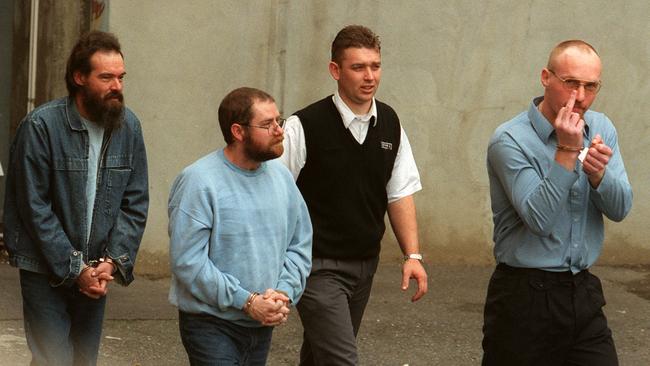
Just one victim, David Johnson, was killed there.
On Thursday, May 20 1999, police discovered eight bodies in six plastic drums hidden in the bank vault. Police discovered two more bodies in the backyard of a house at Salisbury North on May 23 and 26. Two more bodies were found at separate locations in the city’s north.
Led by John Bunting, the killers – and many of the victims – were from the Salisbury North area. Eight of the victims’ remains were dumped in barrels filled with hydrochloric acid and stored in the bank.
One reason for the murders’ ongoing infamy was their incestuous nature, in that most of the victims were members of the trio’s social circles or even families.
James Spyridon Vlassakis helped torture and kill his own half-brother, Troy Youde, as well as his stepbrother David Johnson – at the time, he worshipped the “charismatic” Bunting.
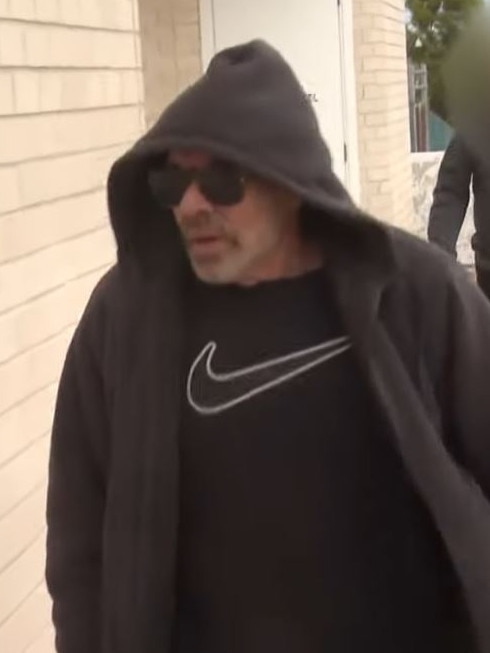
Bunting kept a “wall of spiders” in his home, with names and addresses of people he believed to be pedophiles – also targeting those he believed were gay or what he called “dirties”.
In several cases they were suffering from mental illness.
In total 12 people were killed over a period of seven years – including extreme torture and even cannibalism, with some of the victims’ pensions then stolen.
The victims were Clinton Trezise, 22, Ray Davies, 26, Michael Gardiner, 19, Barry Lane, 42, Thomas Trevilyan, 18, Gavin Porter, 29, Troy Youde, 22, Fred Brooks, 18, Gary O’Dwyer, 29, Elizabeth Haydon, 37, and David Johnson, 23.
Bunting and Robert Wagner were found guilty of all 11 of those murders. Vlassakis pleaded guilty to four counts of murder, and testified against his fellow killers. Wagner and Bunting were acquitted over the death of Suzanne Allen, 47.
The 11-month trial cost $15m and is the most expensive in South Australia’s history.
In 2011 a movie based on the life of John Bunting was released to critical acclaim.
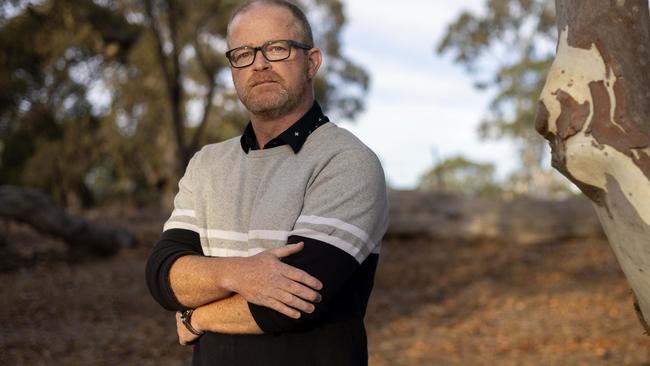
Earlier this year, accomplice to the murders Mark Ray Haydon reached the end of his 25-year prison term, and was released into the community on a strict Supreme Court-imposed interim supervision order.
Later that same month, Mark Slaven, whose best friend Troy Youde was one of the victims of the horrific murders, spoke out about his private grief for the first time.
Sentence – John Justin Bunting and Robert John Wagner – life sentences, no parole. James Spyridon Vlassakis – life sentence, 26 years non-parole. Accomplice Mark Ray Haydon – jailed for 18 years non-parole.
Truro serial killings
A Valiant station wagon blows a tyre and crashes on Princes Highway near Kingston – and it ends a shocking spree of serial killings and rapes.
The crash became the turning point in 1977, ending the life of psychopathic rapist Christopher Robin Worrell and his ex, Deborah Skuse, and seriously injuring James William Miller.
In what became known as the Truro Murders, seven young innocent South Australian woman – Veronica Knight, Tania Kenny, Juliet Mykyta, Sylvia Pittman, Vicki Howell, Connie Iordandes and Deborah Lamb – were abducted and killed in seven short weeks.
Worrell and Miller – the elder by 17 years – met in prison. Both were serving terms for abductions and rape.
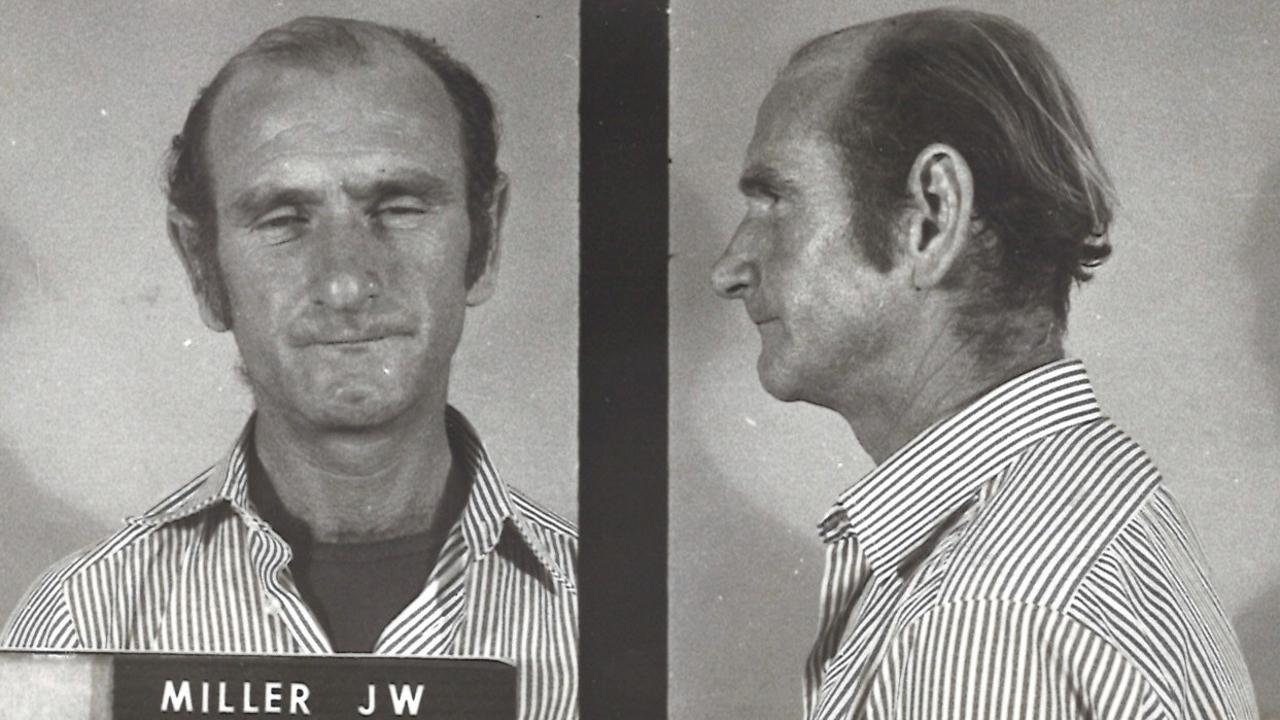
Some reports, including Miller’s version of events, put him in love with and dependent on Worrell, who was charismatic and prone to “black moods”. Miller called him “Jekyll and Hyde”.
Once they were out of prison they cruised Adelaide for girls for Worrell to have sex with. These pick-ups became violent rapes.
Then, during just seven weeks of the summer of 76-77, Worrell and Miller picked up and killed seven young women and teenagers aged 15-26, dumping five at Truro, east of the Barossa Valley.
The killings stopped after the crash, but the first body wasn’t found until April 1978 – Veronica Knight. About a year later Sylvia Pittman’s remains were found. Three more bodies were found during a search of the Truro area.
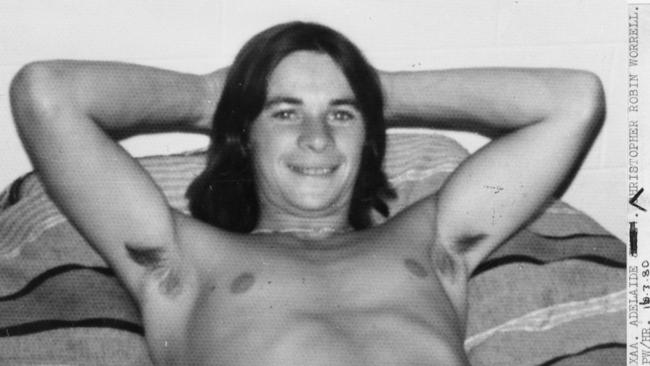
Miller’s arrest came about after an offhand comment at Worrell’s funeral to a friend about the latter's obsession with raping and murdering woman. Police received word of the comment and eventually arrested Miller when he went to collect his dole payment.
Miller claimed he was merely the chauffeur – he would drive them somewhere, go for a walk and when he came back Worrell would have raped and strangled the girls. He admitted to then helping dump their bodies, usually at Truro.
A jury disagreed with Miller’s claim that he was passive in the murders and found him guilty of six of the seven murders.
In March 1980 he was sentenced to life in jail without parole, and in 2000, the Supreme Court set a non-parole period of 35 years.
Miller maintained his innocence for the murders until his death by liver failure, related to hepatitis C, in October 2008, several years short of being eligible for parole.
Sentence – James Miller, convicted of six murders and sentenced to life in jail
Originally published as Bikie disappearances and bashings, Bodies in the Barrels, House of Horrors: Shocking crimes of Adelaide’s northern suburbs





